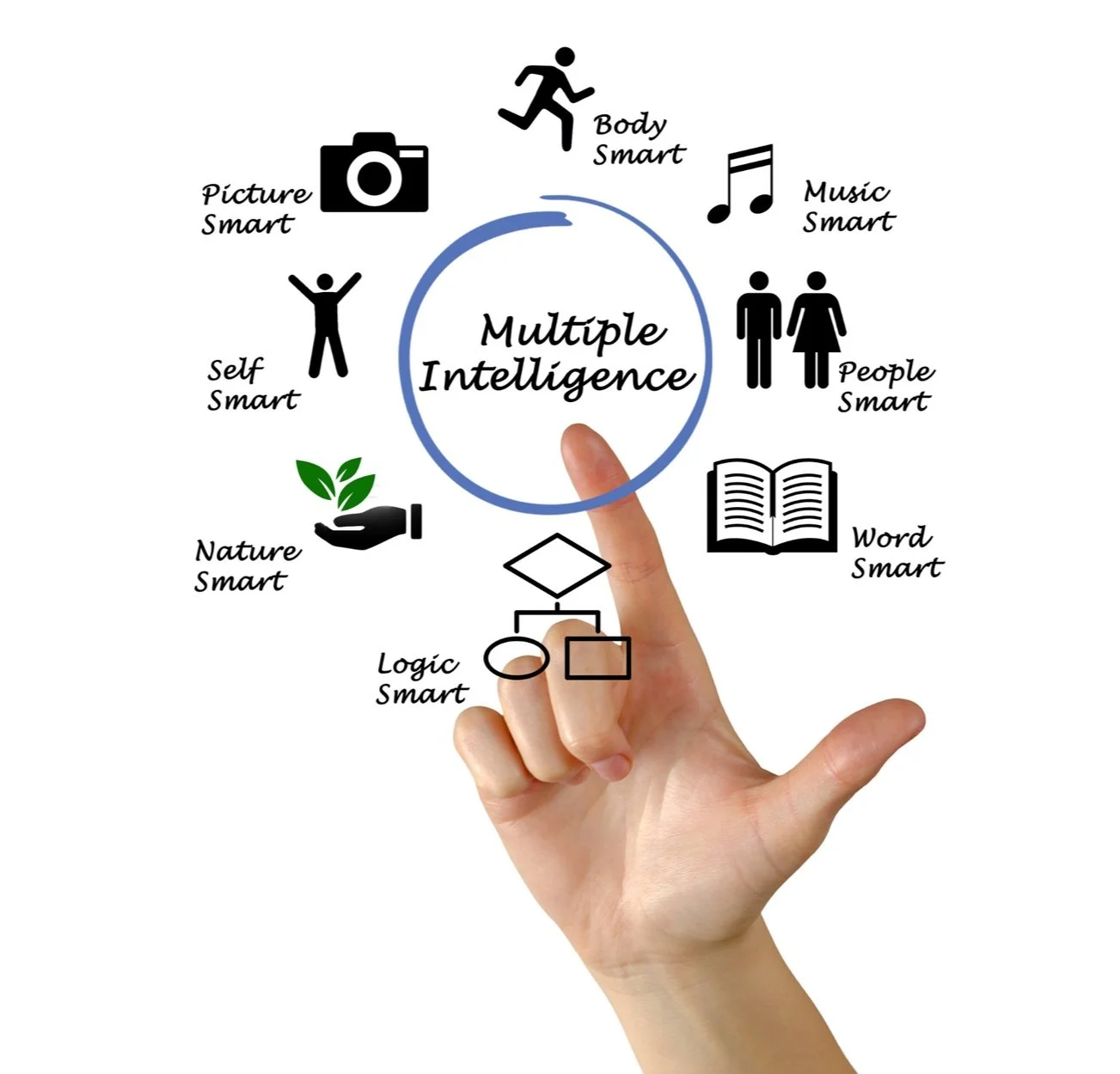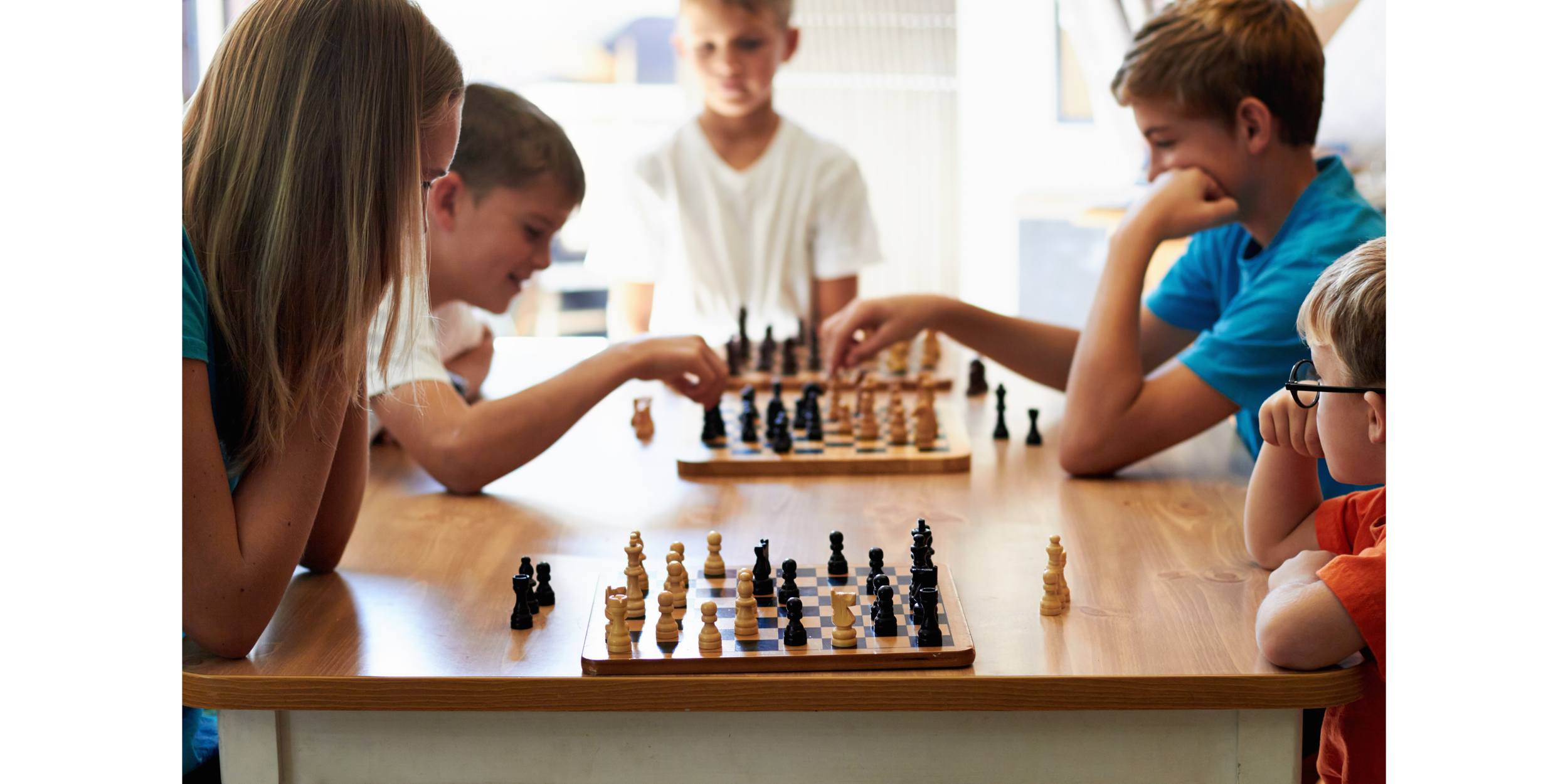Understanding Twice Exceptionality (2e): Navigating Life as a Gifted Neurodivergent Individual
The Unique Experience of Twice Exceptionality
Twice exceptionality, often abbreviated as 2e, is a term used to describe individuals who are both intellectually gifted and have a learning difference or disability. This unique combination can present both strengths and challenges, as traditional educational and psychological systems are not always equipped to recognize or support twice-exceptional individuals. Understanding 2e is crucial because it affects how children learn, how adults navigate the world, and how we as a society can foster environments that allow neurodivergent individuals to thrive.
As someone who is gifted and AuDHD (Autism + ADHD) myself, I understand firsthand what it means to navigate life as a twice-exceptional person. The journey can be filled with contradictions—exceptional abilities in some areas but struggles in others. In this blog, we’ll explore what twice exceptionality means, the implications of being 2e throughout life, different combinations of neurodivergence and giftedness, and how therapy can support twice-exceptional individuals.
What Does It Mean to Be Twice Exceptional?
A twice-exceptional person is someone who falls into the category of being intellectually gifted while also having a diagnosis such as ADHD, autism, dyslexia, or another learning or developmental difference. The interplay of giftedness paired with other neurodivergence creates its own set of unique strengths and challenges for the individual.
Unlike neurotypical gifted individuals, twice-exceptional people often face paradoxical experiences—excelling in certain areas while struggling significantly in others. For example, a 2e child might have an advanced vocabulary and an insatiable curiosity for complex topics but struggle with executive functioning skills like organization, time management, or impulse control. A 2e adult may display profound creativity and deep analytical thinking but find themselves overwhelmed by sensory input or social expectations. This dynamic can lead to misdiagnoses, underdiagnoses, or being completely overlooked in both gifted programs and special education support systems.
Many twice-exceptional individuals experience asynchronous development, meaning their intellectual, emotional, and physical growth do not progress at the same rate. A 2e person might have the cognitive abilities of someone much older but the emotional regulation of someone much younger, making it difficult for others to understand or accommodate their needs. This disparity often leads to frustration, self-doubt, and difficulty fitting into conventional educational and workplace settings.
Recognizing and supporting twice-exceptional individuals is crucial because when properly nurtured, their strengths can flourish, and their challenges can be managed effectively. However, without appropriate identification and intervention, 2e individuals are at risk of academic failure, mental health struggles, and unfulfilled potential. Understanding the complexity of twice exceptionality allows for greater advocacy, support, and ultimately, a world that better embraces neurodiversity.
What Does Giftedness Mean?
Giftedness is a concept that often carries a complicated reputation. While society celebrates physical talent—praising Olympic athletes or world-class musicians—intellectual giftedness is sometimes met with skepticism or even discomfort. The idea that some individuals are significantly more capable in various cognitive domains can be perceived as elitist, and as a result, discussions around giftedness are sometimes dismissed or misunderstood.
However, giftedness is real and more prevalent than most people think. It is not limited to traditional academic achievement or high IQ scores. In fact, professionals in psychology and education are actively working to redefine giftedness beyond outdated stereotypes of socially awkward geniuses. Instead of limiting the definition to intelligence tests, many experts recognize giftedness as a diverse and complex phenomenon that can manifest in multiple ways.
Mary-Elaine Jacobsen, Psy.D., in her book The Gifted Adult: A Revolutionary Guide for Liberating Everyday Genius, expands on this broader understanding. She identifies different types of giftedness beyond the traditional Binet IQ test, including:
Cognitive giftedness – Exceptional problem-solving abilities, rapid learning, and intellectual curiosity.
Creative giftedness – High levels of originality, innovation, and artistic talent.
Emotional giftedness – Deep empathy, heightened sensitivity, and strong moral reasoning.
Sensory giftedness – Acute awareness of sensory input, which can sometimes lead to sensory overwhelm.
In addition to these domains, Jacobsen highlights hallmark traits of twice-gifted individuals, such as:
An obsession with self-actualization – A constant drive to improve oneself and reach one's full potential.
A desire to improve the world – A strong sense of justice and a need to make meaningful contributions to society.
Depth and intensity – A tendency to experience emotions, ideas, and relationships with a level of depth that can feel overwhelming or isolating.
Frustration with inefficiency and superficiality – A deep craving for truth, meaning, and authenticity—and a low tolerance for anything that feels performative or shallow.
For many gifted adults, these traits are both a blessing and a burden. While their minds may work quickly and creatively, they often feel out of step with the pace and priorities of the world around them. This can lead to chronic feelings of loneliness, existential angst, and burnout—especially when their inner lives are masked or misunderstood.
Types of Giftedness
Most people think of giftedness as having a high IQ. However, giftedness exists across a variety of domains.
Why Is Twice Exceptionality Important?
Understanding twice exceptionality is vital because traditional education and psychological assessment models often focus on either giftedness or disabilities—but rarely both at the same time. Many twice-exceptional individuals are misunderstood, misdiagnosed, or overlooked because their strengths can mask their struggles, and vice versa.
For example, a child who is profoundly gifted in math might struggle with reading due to dyslexia. Their intelligence may lead teachers or parents to assume they are simply "lazy" when, in reality, they require specialized support to reach their full potential. Similarly, a 2e autistic individual might excel in creative problem-solving but struggle with executive functioning or sensory processing issues.
Recognizing twice exceptional characteristics helps ensure these individuals receive the right accommodations and interventions to succeed.
Growing Up 2e: Childhood and Adulthood
Twice Exceptional Children
Growing up as a 2e child can be an emotional rollercoaster. Many twice-exceptional children experience asynchronous development, meaning their intellectual abilities may be years ahead of their peers, while their emotional regulation or executive functioning skills lag behind.
Common experiences for 2e children:
Feeling out of place – Gifted but struggling with social skills or sensory sensitivities.
Frustration in school – Excelling in some subjects while struggling in others.
Masking struggles – Developing coping mechanisms that hide difficulties.
Emotional intensity – High sensitivity, perfectionism, and deep empathy.
Because these children often don’t fit into typical "gifted" or "special education" categories, they are at risk of either being ignored or placed in inappropriate learning environments that don’t address their full range of needs.
Twice Exceptional Adults
As 2e children grow up, they often face unique challenges in adulthood. Many twice-exceptional adults struggle with self-doubt, imposter syndrome, and difficulties with work environments that demand strict conformity.
Common struggles for 2e adults:
Perfectionism and burnout – High standards lead to overworking and exhaustion.
Career challenges – Struggles with structure, deadlines, or executive functioning.
Social difficulties – Feeling like they don’t quite fit in anywhere.
Mental health concerns – Higher risks of anxiety and depression due to feeling misunderstood.
Recognizing twice exceptionality later in life can be a relief—it helps many adults reframe their experiences and understand why they’ve faced certain struggles.
Exploring Different Types of Twice Exceptionality
Twice-exceptional individuals are not a monolithic group—there are many different combinations of giftedness and neurodivergence, each presenting its own distinct challenges and strengths. Understanding these variations helps to better support 2e individuals in both educational and personal settings.
Autism and Giftedness (2e Autism)
Autistic individuals who are also gifted often experience a heightened intensity in cognitive processing, deep passions for specific interests, and an exceptional ability to analyze patterns and systems. However, this combination can also mean sensory sensitivities, difficulty with social communication, and struggles with rigid thinking patterns. While their intellectual capacity may allow them to understand complex concepts at an early age, navigating daily life and interpersonal relationships can still be challenging. Traditional school environments may not accommodate their need for both advanced intellectual stimulation and sensory-friendly learning spaces, leading to frustration and underachievement.
ADHD and Giftedness (2e ADHD)
Gifted individuals with ADHD are often highly creative, energetic, and capable of deep, hyperfocused learning on subjects that interest them. However, they may struggle with executive functioning skills, including organization, impulse control, and maintaining focus on tasks that do not immediately capture their attention. Because of this paradox—exceptional ability alongside difficulty with basic daily functioning—many 2e ADHD individuals are labeled as “not living up to their potential.” Misunderstood as lazy or undisciplined, these individuals often experience heightened anxiety and self-doubt, which can impact long-term success if not properly supported.
Dyslexia and Giftedness (2e Dyslexia)
A gifted individual with dyslexia may have an incredible ability to think in complex, abstract ways, demonstrate strong problem-solving skills, and excel in verbal reasoning or hands-on learning. However, traditional literacy-based education can pose significant challenges, making them appear to struggle academically despite their high intelligence. Many 2e dyslexic students develop compensatory strategies, such as relying on auditory learning or exceptional memory skills, but without proper recognition and support, they may still experience frustration and low academic confidence.
Other Forms of Twice Exceptionality
Beyond autism, ADHD, and dyslexia, there are many other forms of twice exceptionality, including:
Giftedness and Anxiety Disorders – Highly gifted individuals may struggle with heightened anxiety due to their deep awareness of complex societal or existential issues.
Giftedness and Sensory Processing Disorder (SPD) – Some gifted individuals have extreme sensitivities to sensory stimuli, making certain environments overwhelming or distressing.
Giftedness and Emotional Regulation Challenges – Many twice-exceptional individuals experience intense emotions and struggle with emotional self-regulation, which can impact relationships and self-esteem.
Understanding the broad spectrum of twice exceptionality allows for more personalized support systems that can help individuals harness their strengths while addressing their unique challenges. By acknowledging these intersections, educators, parents, and mental health professionals can work toward a more inclusive approach to supporting 2e individuals.
How Therapy Can Help Twice-Exceptional Individuals
Because twice-exceptional individuals often feel misunderstood, therapy can provide a crucial space for self-discovery and support. Working with a therapist who is 2e themselves can often be a game-changer for 2e individuals.
Benefits of Therapy for 2e Individuals:
Understanding and embracing neurodivergence – Learning how strengths and challenges coexist.
Developing coping strategies – Managing executive dysfunction, sensory overwhelm, and emotional intensity.
Reframing struggles as strengths – Recognizing the unique advantages of being 2e.
Navigating relationships and career – Addressing social struggles and workplace challenges.
At Attuned Therapy, I specialize in working with neurodivergent individuals, including twice-exceptional adults. As someone who is 2e myself, I offer a perspective that blends professional expertise with lived experience.
Why a 2e-Affirming Therapist is Essential for Twice-Exceptional Individuals
For twice-exceptional individuals, finding a therapist who truly understands the unique interplay of giftedness and neurodivergence can make all the difference in mental health and personal growth. Many traditional therapists, especially those who are neurotypical, may not fully grasp the complexities of twice exceptionality, leading to missed opportunities for meaningful support or even harmful misunderstandings.
The Shortcomings of Traditional Therapy for 2e Individuals
Neurotypical therapists without specialized knowledge of 2e experiences may:
Misinterpret coping mechanisms: What appears as defiance, over-explaining, or "thinking too much" may actually be a twice-exceptional individual's way of processing their environment.
Overlook executive functioning struggles: Gifted individuals are often expected to excel in all areas, leading some therapists to downplay difficulties in organization, time management, and follow-through.
Pathologize intensity: Many 2e individuals experience heightened emotions, deep existential thoughts, and an intense drive for self-actualization. A therapist unfamiliar with giftedness might mistake these as signs of disorders rather than natural characteristics of being twice exceptional.
The Benefits of a 2e-Affirming Therapist
A therapist who is either twice exceptional themselves or highly knowledgeable about 2e experiences can offer specialized support that validates and nurtures the individual. Key benefits include:
Understanding asynchronous development—acknowledging that emotional, intellectual, and social growth may not align and providing strategies that respect this reality.
Recognizing sensory sensitivities and executive dysfunction—helping 2e individuals develop realistic coping mechanisms without shaming or diminishing their struggles.
Encouraging deep thinking and existential exploration—offering a space where big ideas, philosophical discussions, and self-actualization are embraced rather than dismissed.
Providing strengths-based therapy—leveraging a 2e individual's natural talents to navigate challenges rather than focusing solely on deficits.
Finding the Right 2e Therapist
If you're twice exceptional, working with a therapist who truly understands your neurodivergence can be transformative. At Attuned Therapy, I specialize in working with gifted and neurodivergent adults, helping them navigate their unique strengths and challenges in a way that feels affirming, validating, and deeply attuned to their experiences.
If you're ready to work with someone who sees and understands your full self, reach out today to schedule a consultation. Let's create a space where your giftedness and neurodivergence are not only accepted but celebrated.
Embracing Your 2e Identity
Twice-exceptionality is a unique and beautiful way of experiencing the world, even if it comes with challenges. If you or someone you love is struggling to navigate life as a 2e individual, know that you are not alone.
If you’re looking for a therapist who truly understands the complexities of being twice exceptional, I invite you to reach out to Attuned Therapy. Let’s work together to harness your strengths, overcome challenges, and build a life where you can truly thrive.
Schedule a consultation with me today.





